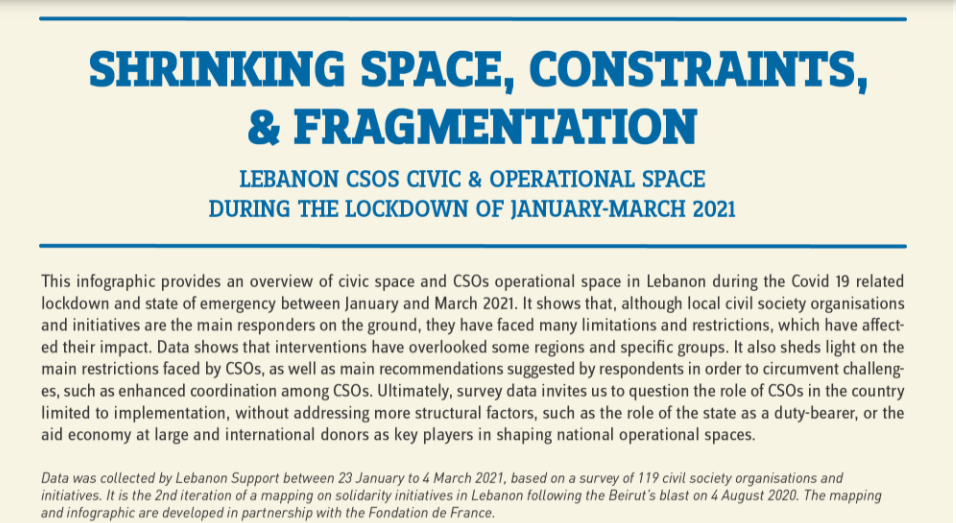Mapping of solidarity initiatives in Lebanon, Focus on CSOs space in Lebanon during lockdown | January 2021
Lebanon Support is undertaking a mapping of solidarity initiatives and aid and humanitarian response interventions in Lebanon. This survey focuses particularly on the effect of the lockdown on operational and civic space.
Data collected through this survey will be displayed in open access on the Daleel Madani website with the aim of enhancing coordination efforts, identifying gaps in interventions, and informing programming and strategizing. Ultimately, the data will help make the case for the importance to maintain humanitarian and civic space in the country.
The survey should take no more than 15 minutes to complete, and your contribution is highly appreciated.
The mapping will be published in open access on Daleel Madani
This is the second iteration of an ongoing mapping initiative by Lebanon Support.
Read below some of the main trends and insights from the first iteration of the mapping with a focus on solidarity initiatives and interventions in the aftermath of the Beirut blast, on August 4th, 2020:
Local initiatives including national and local CSOs, grassroot initiatives, as well as campaigns were the main responders mobilising on the ground, which reiterate the significant role of local and national actors who are constantly at the forefront of humanitarian responses following crisis situations, whether in the form of volunteer collectives or more institutionalised non-governmental organisations.
There is an apparent disconnect between the identified priorities for intervention, and the actual efforts on the ground. For instance, while the first priority identified by respondents was related to reconstruction and repairs, only 31% of the responders on the ground were actually focusing on this area of intervention.
Indeed, data shows that less than 37% of respondents have conducted a needs-assessment as part of their response planning and implementation. This sheds light on prevailing practices and interventions that are not systematically evidence-based in order to adequately respond to the needs of the affected populations.

